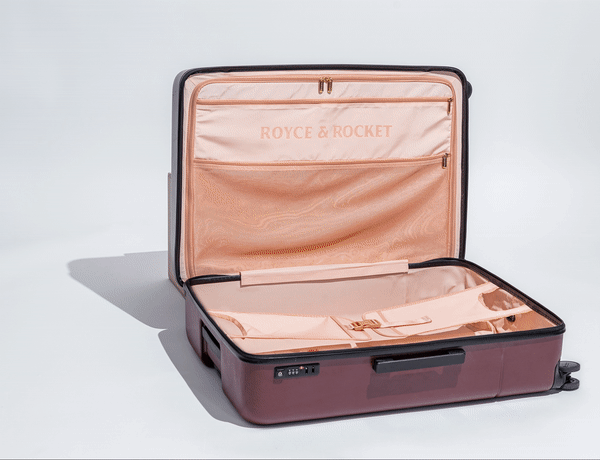As a traveler, you want to make the most of every trip you take. While sitting back, grabbing a camera from your packing cubes, and observing a foreign culture from the outside is easy, it may not give you the kind of experience you can get by actively trying to immerse yourself in the country’s culture.
That said, you do not need adrenaline-pumping adventures to maximize your travel experience. In this guide, we will discuss a few simple ways to enjoy a more immersive vacation.
Ways to Immerse Yourself In a New Setting on Vacation
1. Travel Smart
While you cannot prepare for a perfect trip, you can minimize some of the stresses associated with traveling. Problems like traffic jams, flight delays, and lost documents can happen to anyone, but anticipating such potential glitches makes it easier to manage them should they happen.
Focus on convenience while preparing your trunk luggage. Will you be able to haul your luggage around using only public transportation? The less stuff your favorite pink suitcase carries, the easier it will be for you to carry it around. Also, fewer luggage will make it easier for you to adapt to any last-minute changes.
All in all, traveling smart is about preparing for essential details beforehand so you do not have to stress about them after reaching your destination. This way, you will be able to commit all your focus and energy to making the most of your time abroad.
2. Befriend Locals
When in a different country, it is easy to want to look for people who share your language, customs, social etiquettes, and even the feeling of being a foreigner.
However, if you only engage with people who are similar to you, you are missing one of the biggest points of traveling – learning and educating yourself about the local culture. Hence, seek out opportunities to engage with the locals and learn more about the place. You could head to a local bar or café, visit a bookstore and ask people about their favorite genres, or even spend a day volunteering for a local project.
There are endless opportunities to interact with locals – you just need to be open to them.
3. Choose Accommodations With Local Ambience
The worldwide growth in tourism means there are more options than ever when it comes to lodging and accommodation. An increasing number of travelers looking beyond conventional hotels are open to exploring the experiences offered by home-stays, couch-surfing, and apartment rentals. While hotels are more comfortable and familiar, they do lack the personal touches that reflect the intricacies of the city or town.
Home-stays and couch-surfing are excellent options if you do not mind frequent interactions with your hosts. However, they can be a bit restrictive for people who prefer personal space for themselves and their trunk luggage. People looking for something more private can choose to rent an apartment.
Even if you do not want to deviate from a hotel, you can always look past the chained-brands and seek out smaller but well-known local or family-owned hotels. These places often offer a more personal accommodative experience and help you take a closer look at the day-to-day life of the city or town.
Your place of accommodation is a key determinant of your overall vacation experience, so choose well.
4. Learn Local Customs
Before packing your pink suitcase and boarding the flight, it is important to familiarize yourself with the customs and etiquettes of your to-be vacation destination. Without adequate research in this regard, you may end up embarrassing yourself or even offend the locals. There are plenty of customs and culture guides available, and we recommend carrying one in your trunk luggage and going through it on your flight or during layovers.
For example, did you know that, in many Middle Eastern countries, eating with your left hand is seen as offensive? Or that while in South East Asia, you should never sit with legs extended or touch someone’s head? Or that Canadians dislike speaking with the mouth full or putting elbows on tables? By educating yourself beforehand, you can avoid a social faux pas and stay in the good graces of the locals.
5. Manage Expectations
When traveling, you should do well to keep your expectations in check. Some places may not have the conveniences and comforts that we take for granted back home. Public transport may not be the most efficient. Traffic may be atrocious. The internet may be slow or sporadically available, and might force you to dig into your packing cubes and find your mobile hotspot device. These are just a few of the things that travelers, even seasoned ones, tend to complain about – understandably so. However, letting these inconveniences dictate our mood often renders us unable to see the endless possibilities and excitements that await us in the middle of the unfamiliar.
To prevent this from happening, you must be prepared to expect even the most unexpected. While safety and security should never be compromised on, you should leave a bit of wiggle room for other aspects. Once again, familiarizing yourself with the local culture and customs before setting off can help you set reasonable expectations. It can also adjust your perception about – and reaction to – things that may be a bit different to what you are used to.
6. Try New Cuisines
No matter where you travel to, a McDonald’s restaurant is one thing you are almost guaranteed to find – not necessarily for the better. Have you traveled all the way over to a different country, just to have the usual burger and fries? Well, not only do these places cost more, but they can also keep you from giving the local foods a shot.
Seek out more local, family restaurants or try out some street food. Ask around for some of the best non-touristy restaurants (another opportunity to interact with the locals). If you have already made a local friend, see if they are willing to cook a local meal with you.
7. Learn The Language
Learning an entire language is difficult and time-consuming, but you can always pick up a bunch of useful words and phrases. Even though English is widely-spoken, it is best to assume that some locals may not speak the language (another example of managing expectations).
Learn to say words like ‘hello’, ‘thank you’, and ‘please’. Learning to say ‘I do not speak [the local language]’ or ask a local if they speak English can also be incredibly useful in navigating certain situations. You may also want to chuck a travel phrase book in one of your packing cubes.
Knowing the native language can not only help you, but any attempt to speak it will be appreciated by the locals.
Wrapping Up
To sum up, by diving deeper into the local culture and seeing things from the natives’ perspective, you can make your vacation more exciting and observe things that other casual travelers might miss. We hope that this guide will come in handy the next time you decide to satiate your wanderlust and put your pink suitcase to use.





